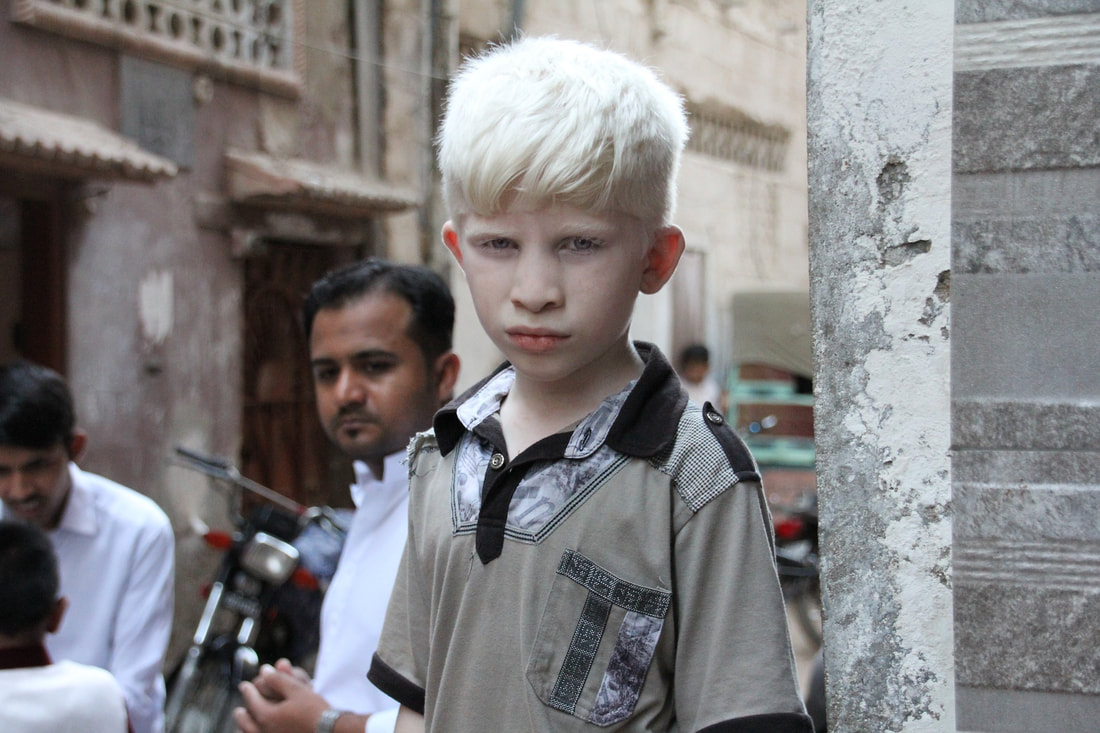Albinism is a condition caused by a lacking ability to produce melanin – a broad term for a group of natural pigments found in most organisms. The condition is inherited, non-contagious and affects all sexes and ethnicities. In most cases albinism is inherited in a recessive pattern, meaning that both parents of the affected carry the mutated gene without showing signs of it. People who suffer from albinism are physically characterized by very light skin and hair. They usually have impaired sight and are sensitive to the sun and bright light. Due to this, these people are also more prone to get skin cancer, which statistics also show as in some societies the majority in this group dies from skin cancer between 30 and 40 years of age. There’s no cure for albinism, but skin cancer can be prevented with the access to health care and sun-protective means such as sunscreen.
However, health and social support can not be taken for granted. In fact, in many countries these helpful means are not available. Albinism is most prevalent in sub-saharan Africa and in some of the poorest countries in the world such as Tanzania and Zimbabwe. Furthermore, not only do people with albinism suffer from their physical condition, but also a significant stigma. Due to their different looks and disabilities people with albinism often face intersecting discrimination and abandonment from families. This is a global problem, although most reported cases come from African countries where the harassments are more severe. Reasons for this include poverty, the fact that most habitants are dark-skinned and ignorance in the form of perilous belief of witchcraft. Body parts from people with albinism are believed to give happiness, prosperity and wealth. Hence, the victims constantly face the threat of having their bodies violated in the hands of a corrupt market. Their life isn’t worth a penny, but their body parts are worth a fortune.
So what are the underlying mechanisms for this kind of discrimination? There are many feasible explanation for this, one being that what is unknown is also unpleasant. How often do you feel this way? I know I do, many times per day, and I believe that it’s a normal psychological phenomena. What’s foreign is equivalent to chaos. Too much chaos makes us uneasy and anxious, which is weary for the brain. On the opposite, structure and routines bring us equanimity and comfort. This is why our brain constantly tries to make sense out of our surrounding by categorizing and explaining it. This function is crucial for our survival, because imagine if we didn’t have it and just looked at things as they appear to us: a table for example would just be four sticks connected to a disc and not something on which you can put things. It wouldn’t be a concept that makes sense to us and is therefore of no use. In psychological terms these concepts are called cognitive schemas, which are basic assumptions about how the world works.
Broken down like this it’s obvious that this function is necessary for us. However, the world is very complex and sometimes we simplify our environment too much and create inaccurate explanations that can cause serious harm. I believe that this is the foundation for hostility, as we become afraid or aversive towards the unknown. In the worst scenarios we have witnessed hostility being directed at different groups of people, such as individuals with albinism. This is horrendous and we can contribute to the better by educating ourselves and raising issues like this. We stand in solidarity against intolerance and we give voice to those who are silenced.
Jenny Giang

